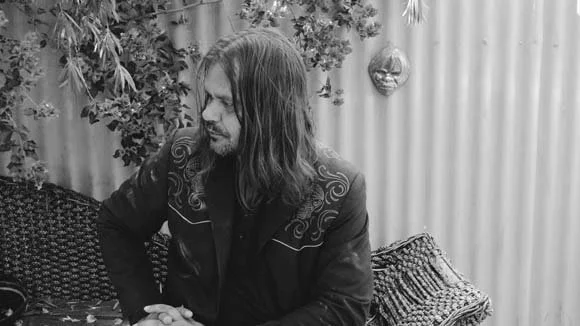Meet Cannes Caméra d'Or–Winning Indigenous Director Warwick Thornton
Warwick Thornton is a prolific cinematographer and Cannes Caméra d'Or–winning director, but at home in Central Australia he's an Arrernte boy who loves country music and is teaching himself how to paint. When I call Warwick on his "outside phone" at his outback home in Alice Springs, he has just arrived home after a stint in Bulgaria working as cinematographer on The Septembers of Shiraz. Based on the critically acclaimed novel by Iranian American author Dalia Sofer, the film stars Adrien Brody and Salma Hayek.
"I wasn't real interested in film as a child," he admits. "Alice Springs had a walk-in cinema and a drive-in, so every film was three years too late and it was all just basic Hollywood stuff like Jaws and Star Wars. But it was when VHS came out — that sparked my interest in cinema, because then you could choose the film you wanted to watch, you know what I mean? And I wasn't very good at sports, which for a lot of blackfellas… You know, a lot of Aboriginal men in general were into football and I wasn't very good at that so it was kind of like I needed a bit of an outlet."
Raised in a culture of storytelling, Warwick's childhood was full of ghost stories featuring good and evil spirits. Not a lot has changed since then. "A lot of my mob don't have access to computers let alone the internet, so oral history is still a strong part of our existence. They say if it's not written down it's not true, but that's such a lie."
Warwick's most recently released film explores this invisible world. The Darkside was created following a callout for Indigenous ghost stories ("the blacker the better"), the best of which were then re-told by actors as a collection of short films. Inspired partly by his experiences going to school in the monastic desert town of New Norcia, a strange place where there were "lots of Jesuses crucified on crosses everywhere you looked" and lots of "saints, sinners and devils", the film is uncomfortable and uncanny.
While many of his fans would say 'uncomfortable' is the running theme in Warwick's work (2009's Samson and Delilah followed a tragic Aboriginal couple reeling from the effects of poverty, drug addiction and suspect Government intervention), the director doesn't see it that way, describing the running threads as love and family — or, simply put, "spirituality", a theme whose manifestations "clash and connect, fight and gel".
His films are also funny. Making jokes in dire situations is a pastime that he inherited growing up in a community where you can't help but bear witness to bad things. Describing the desert as "full of angels and full of demons", Warwick is tapping into a world of contrasts that many try but fail to express in Australian film. He concludes, "Laughter happens in utopia and laughter happens in hell. That's the great truth in humanity and storytelling."
Originally published in Oyster Magazine #105
